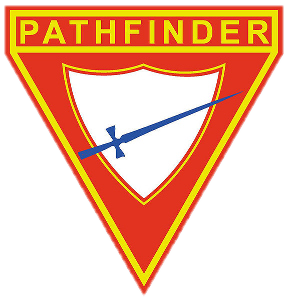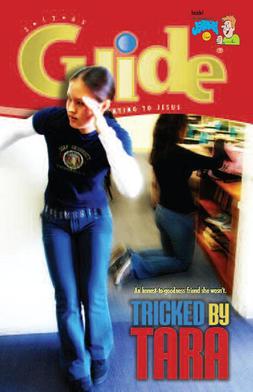Adventism is a branch of Protestant Christianity that believes in the imminent Second Coming of Jesus Christ. It originated in the 1830s in the United States during the Second Great Awakening when Baptist preacher William Miller first publicly shared his belief that the Second Coming would occur at some point between 1843 and 1844. His followers became known as Millerites. After Miller's prophecies failed, the Millerite movement split up and was continued by a number of groups that held different doctrines from one another. These groups, stemming from a common Millerite ancestor, collectively became known as the Adventist movement.

The Seventh-day Adventist Church (SDA) is an Adventist Protestant Christian denomination which is distinguished by its observance of Saturday, the seventh day of the week in the Christian (Gregorian) and the Hebrew calendar, as the Sabbath, its emphasis on the imminent Second Coming (advent) of Jesus Christ, and its annihilationist soteriology. The denomination grew out of the Millerite movement in the United States during the mid-19th century and it was formally established in 1863. Among its co-founders was Ellen G. White, whose extensive writings are still held in high regard by the church.

A Sunday school is an educational institution, usually Christian in character and intended for children or neophytes.

Amazing Facts is a non-profit Seventh-day Adventist evangelistic ministry based in Granite Bay, California, which broadcasts daily television programming worldwide. It is based on the teachings of Scripture, and especially focuses on the Three Angels' Messages of Revelation 14. Beginning as a radio program dedicated to Christian evangelism, it later expanded into television and online Bible study ministries.

The Pathfinder Club, or simply Pathfinders, is a department of the Seventh-day Adventist Church (SDA), which works specifically with the cultural, social and religious education of children and teens. Children 10 years and older are eligible to become members of the club.

The Seventh-day Adventist Church had its roots in the Millerite movement of the 1830s to the 1840s, during the period of the Second Great Awakening, and was officially founded in 1863. Prominent figures in the early church included Hiram Edson, Ellen G. White, her husband James Springer White, Joseph Bates, and J. N. Andrews. Over the ensuing decades the church expanded from its original base in New England to become an international organization. Significant developments such the reviews initiated by evangelicals Donald Barnhouse and Walter Martin, in the 20th century led to its recognition as a Christian denomination.

The Seventh-day Adventist Church holds a unique system of eschatological beliefs. Adventist eschatology, which is based on a historicist interpretation of prophecy, is characterised principally by the premillennial Second Coming of Christ. Traditionally, the church has taught that the Second Coming will be preceded by a global crisis with the Sabbath as a central issue. At Jesus' return, the righteous will be taken to heaven for one thousand years. After the millennium the unsaved cease to exist as they will be punished by annihilation while the saved will live on a recreated Earth for eternity.
The theology of the Seventh-day Adventist Church resembles that of Protestant Christianity, combining elements from Lutheran, Wesleyan-Arminian, and Anabaptist branches of Protestantism. Adventists believe in the infallibility of Scripture and teach that salvation comes from grace through faith in Jesus Christ. The 28 fundamental beliefs constitute the church's official doctrinal position.
Worship services of the Church of Jesus Christ of Latter-day Saints include weekly services, held in meetinghouses on Sundays, in geographically based religious units. Once per month, this weekly service is a fast and testimony meeting. Twice each year, the LDS Church holds a worldwide general conference. LDS Church adherents also worship in temples, which are open only to members in good standing.

Adventist University of the Plata in Spanish: Universidad Adventista del Plata is a private Christian coeducational university in Libertador San Martín, Entre Ríos, Argentina, founded in 1898.

Guide magazine is a Seventh-day Adventist weekly periodical published by Pacific Press Publishing Association. It is a Christian story magazine that uses true stories to illustrate Bible passages and is targeted to 10- to 14-year-old youth.

The "three angels' messages" is an interpretation of the messages given by three angels in Revelation 14:6–12. The Seventh-day Adventist church teaches that these messages are given to prepare the world for the second coming of Jesus Christ, and sees them as a central part of its own mission.
Samuele R. Bacchiocchi was a Seventh-day Adventist author and theologian, best known for his work on the Sabbath in Christianity, particularly in the historical work From Sabbath to Sunday, based on his doctoral thesis from the Pontifical Gregorian University. Bacchiocchi defended the validity of the Feasts of the Lord, situated in Leviticus 23, he wrote two books on the subject. He was also known within the Seventh-day Adventist church for his opposition to rock and contemporary Christian music, jewelry, the celebration of Christmas and Easter, certain dress standards and alcohol.

The seventh-day Sabbath, observed from Friday evening to Saturday evening, is an important part of the beliefs and practices of seventh-day churches. These churches emphasize biblical references such as the ancient Hebrew practice of beginning a day at sundown, and the Genesis creation narrative wherein an "evening and morning" established a day, predating the giving of the Ten Commandments. They hold that the Old and New Testament show no variation in the doctrine of the Sabbath on the seventh day. Saturday, or the seventh day in the weekly cycle, is the only day in all of scripture designated using the term Sabbath. The seventh day of the week is recognized as Sabbath in many languages, calendars, and doctrines, including those of Catholic, Lutheran, and Orthodox churches.
Clifford R. Goldstein is an American author and editor. He is a leading figure in the Seventh-day Adventist denomination and espouses mainline Adventist beliefs.

Loma Linda University Church of Seventh-day Adventists is a Seventh-day Adventist church on the Loma Linda University campus in Loma Linda, California, United States. By membership, it is the largest Adventist church in the world, with about 6,400 members.

Bethany Independent-Presbyterian Church (IPC) is an independent church located between the Paya Lebar and Serangoon areas of central Singapore. It is the mother church of the IPC Family, which spans Singapore, India, Australia and Myanmar.
Richard M. Davidson is an Old Testament scholar at Andrews University, Michigan, where he is currently the J. N. Andrews Professor of Old Testament Exegesis.
The Seventh-day Adventist Church pioneers were members of Seventh-day Adventist Church, part of the group of Millerites, who came together after the Great Disappointment across the United States and formed the Seventh-day Adventist Church. In 1860, the pioneers of the fledgling movement settled on the name, Seventh-day Adventist, representative of the church's distinguishing beliefs. Three years later, on May 21, 1863, the General Conference of Seventh-day Adventists was formed and the movement became an official organization.












